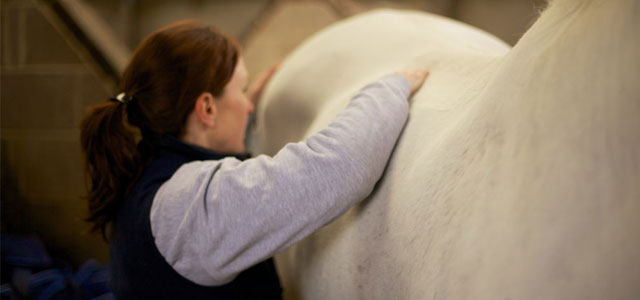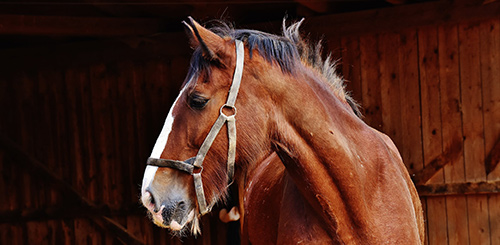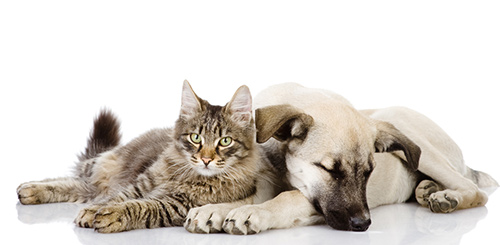When to Seek Help
How can equine musculoskeletal problems occur?
The spine of a horse is relatively rigid, and has limited movement which is brought about by the joints between the vertebrae and the intervertebral discs. Trauma can cause these joints to become stuck within their normal range of movement leading to pain and loss of normal function.
Almost anything can affect your horses back. The causes of musculoskeletal issues can be broadly grouped into two main categories - Acute or Chronic.
Acute - These are due to a one off traumatic event. For example your horse slipping on the road, getting cast in his stable, falling out hunting, pulling back violently when tied up, landing awkwardly after a fence.
Chronic - These occur more gradually. For example, due to a saddle not fitting as well as it could, or incorrect foot balance, or maybe the rider isn’t sitting as straight in the saddle as she/he could be. Training can have an effect. Dental problems, conformation and old or underlying injuries can also cause compensatory patterns within the body which can lead to musculoskeletal problems. Obviously in the case of underlying injuries it is imperative that the root cause of the problem is addressed with your vet first.
When misalignments occur in the spine and pelvis, it is the muscles that have to compensate. Pain, and an interruption to normal nerve function can cause muscles to become tense and go into spasm. This is the body's way of protecting itself from further injury.
When one muscle is affected, tension is also transmitted to other muscles within the muscle group. Tension, fatigue and spasm are primary causes of muscle injury.
Injury and pain in muscles can also affect the tendons, and can lead to asymmetry within the body leading to problems e.g. stiffness on one rein.
How can canine/feline musculoskeletal problems occur?
The spine of a dog or a cat is relatively flexible, and can be subjected to considerable rotational and sideways forces during normal everyday life allowing them to curl up in a tight ball when sleeping, or the stretching they do after a sleep. Generally their bodies are well adapted to cope with these forces, but there are occasions where trauma, or specific overexertion can cause injury to the joints and muscular system of the body.
As most of my animal clients are horses and dogs, for ease I will concentrate on dog problems, but the same applies to cats in many cases. If you have a specific concern about your cat then please do get in touch and we can discuss it.Dogs can suffer musculoskeletal problems for a variety of reasons including:
-
Trauma - accidents such as road traffic accidents or falls can cause secondary problems within the spine and other joints in the body. Your vet will discuss with you whether McTimoney physical therapy would be useful/appropriate to help your dog.
-
Breed Issues - specific breed problems caused by long backed or short legged conformation, for example in dachshunds can cause extra strain to be placed on the spine and associated muscles.
-
Working Dogs - All dogs that lead active lifestyles, as well as working and competition dogs are subjected to particular stresses and strains on their bodies because of the work and exercise that they do. For example, an agility dog is expected to do very quick turns at a fast speed, and also to jump over obstacles which puts considerable strain on its front legs and back. A racing greyhound has to run at flat out gallop around tight corners, and always in the same direction which as you can imagine places high stresses on one side of his body.
-
General Wear and Tear - Even dogs who are pets can incur injuries due to their everyday lifestyle. For example, many dogs can play quite roughly with other canine friends, and can hurt each other by careering at full pelt into each other! Any dog who chases a stick or a ball could twist their neck or body awkwardly when catching it and cause pain. Even skidding on a slippery floor or landing awkwardly when jumping out of the car could have an affect.
-
Overweight Dogs - Dogs that become overweight put extra strain on the joints in their legs and also on their spine
-
Existing orthopaedic issues - Dogs that suffer from arthritis, or hip dysplasia for example, will move and carry themselves in a particular way to avoid feeling pain, and can often cause other problems in their back or other areas of their body as a result of this. McTimoney physical therapy can help to keep your dog as comfortable as possible and able to deal with his existing condition as well as he can. In all cases it is important to discuss with your vet whether he/she feels that McTimoney therapy would benefit your dog.
These issues and others can lead to misalignments which is where joint(s) are taken to their extreme range of motion and to a loss of movement within the joints which affects the mobility of that specific area of the body. This affects the muscles around the joint and can lead to muscle atrophy, and also leads to compensation by the body in other areas which can lead to hypertension in the muscles.
It can also obviously cause pain which will affect how the dog moves and behaves potentially leading to other problems such as perceived aggression because the animal is in pain, or a reluctance to carry out work/play because of the discomfort, or the dog walking with an abnormal posture.
McTimoney physical therapy helps to restore the mobility of the joints, thereby reducing pain and muscle spasm. It can help to increase muscle tone, circulation and flexibility.




